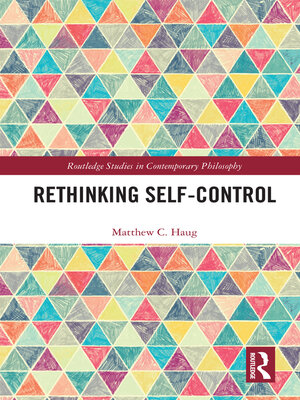
Sign up to save your library
With an OverDrive account, you can save your favorite libraries for at-a-glance information about availability. Find out more about OverDrive accounts.
Find this title in Libby, the library reading app by OverDrive.



Search for a digital library with this title
Title found at these libraries:
| Library Name | Distance |
|---|---|
| Loading... |
Research on self-control in both philosophy and psychology is thriving. Yet, despite a wealth of recent philosophical work on the exercise of self-control, there has been surprisingly little empirically informed work in philosophy on self-control as a psychological trait. This book aims to fill this gap.
There is abundant evidence that self-control is beneficial both to those who have it and to the societies in which they live. This book shows that the neo-Aristotelian framework for understanding self-control-related traits, which has dominated both philosophy and the sciences, is psychologically unrealistic and should be replaced. The traditional conceptions of temperance and continence need to be revised so that they reflect actual human capacities. The author argues for an indirect harmony hypothesis, which claims that high trait self-control consists in having an excellent ability to use indirect strategies to achieve motivational harmony that would not otherwise be possible. He fruitfully combines work from ancient Greek philosophy, contemporary virtue ethics, philosophy of action, moral psychology, social psychology, and cognitive neuropsychology to develop a novel hypothesis about what constitutes human excellence with respect to self-control.
Rethinking Self-Control is an essential resource for philosophers and psychologists interested in virtue ethics, moral psychology, philosophy of mind, philosophy of action, and ancient philosophy.







